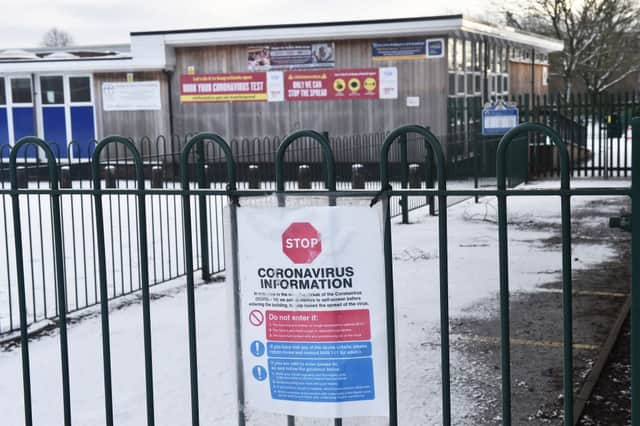These are your legal rights if your child’s school temporarily closes - for staff and employers


Coronavirus infections rates are rising in numerous areas of the UK, but with children in England set to head back to school after the Christmas break, some schools have taken the decision to delay the return.
Although Prime Minister Boris Johnson has insisted that schools are safe in areas where they are currently open, some schools have decided to temporarily close.
Advertisement
Hide AdAdvertisement
Hide AdBut what do employers and employees need to know if schools shut down in their area?
Here, Kate Palmer, HR Advice and Consultancy Director at employment law consultancy Peninsula, explains everything you need to know.
What are my employee rights if my child’s school closes?
Ms Palmer explains that the Government has made clear that a parent will not be classed as ‘self-isolating’ even if their child has been asked to do so, unless their child:
- exhibits symptoms or tests positive for the coronavirus
- they are experiencing symptoms or have tested positive
- they have returned from a non-quarantine exempt country abroad
- or they have been told by the NHS to self-isolate
However, if you are an employer with a parent in your workforce who is self-isolating, the normal rules on self-isolation will apply. Statutory Sick Pay (SSP) will be payable to eligible employees, regardless of an individual’s parental status.
Advertisement
Hide AdAdvertisement
Hide AdThis is except for cases where self-isolation is necessary as a result of travel to a non-quarantine exempt country.
However, Ms Palmer explains that where a parent is not self-isolating, they are still legally entitled to unpaid time off for dependents.
“The employment right to this time off is intended to be for unforeseen emergencies only, of which the coronavirus will likely fall under,” said Ms Palmer.
“The law stipulates that time off for dependants can be taken specifically where a dependant has either fallen ill, is injured, or is assaulted.”
Advertisement
Hide AdAdvertisement
Hide AdOther circumstances in which this time can be taken include where arrangements for the provision of care of a dependent need to be made, in situations where normal arrangements have been disrupted.
“This would include the unexpected closure of an employee’s child’s school. Currently, there is no qualifying service period required to entitle an employee to take time off work of this nature so employees who have just started a new role can still take this time off,” explains Ms Palmer.
How much time can I have off?
If parents need to take time off to care for dependents, they should be aware that not only is it unpaid, but employees are required to inform their employer as soon as possible about the absence, the reason for it and the anticipated length.
Ms Palmer explains, “Employers should not reasonably refuse this time off. Employees have a right to take a ‘reasonable’ amount of time off, which is generally taken to be up to two days per instance.”
Advertisement
Hide AdAdvertisement
Hide AdThe HR expert says that, although this “reasonable” time off is for parents to make other arrangements for childcare, rather than time off to look after the child, employers may wish to consider the coronavirus situation when they establish principles regarding a “reasonable” amount of time.
In situations where it is clear that a longer period of time off may be needed, employers may find it beneficial to open up communication with employees about how an extended period of time off will be dealt with, advises Ms Palmer.
This could include employees being permitted to work from home where possible, or a temporary period of other flexible working options being put into place.
Employees who have caring responsibilities arising from coronavirus can also be furloughed, but Ms Palmer notes that there is no right to be furloughed - this is used at the employer’s discretion.